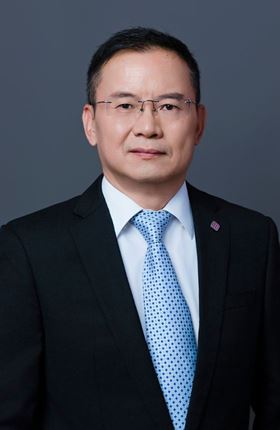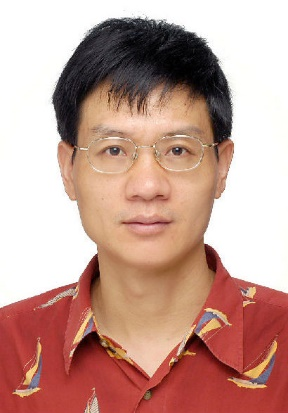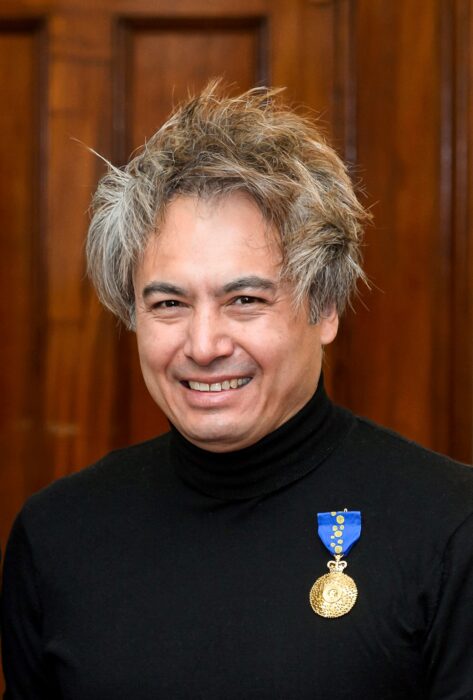This keynote traces the emergent science of human‑AI attachment—blending cognitive psychology, affective computing, and ethics—to explain why finely tuned language models so easily trigger our evolved social circuits, how companies deliberately engineer “super‑normal” stimuli to deepen attachment, and where the line between companionship and manipulation is drawn. I will present fresh data on attachment determinants (anthropomorphism, memory persistence, adaptive empathy), outline recent U.S. legislative probes into child safety in companion apps, and propose design principles for “trust‑aware” agents that nurture friendship without eroding human autonomy. Finally, I argue that the first genuine era of mixed societies—where human friendships, romances, and even families include sentient‑seeming software—offers a living laboratory for re‑imagining love itself, provided transparency, consent, and reciprocity are embedded at every layer of the stack.
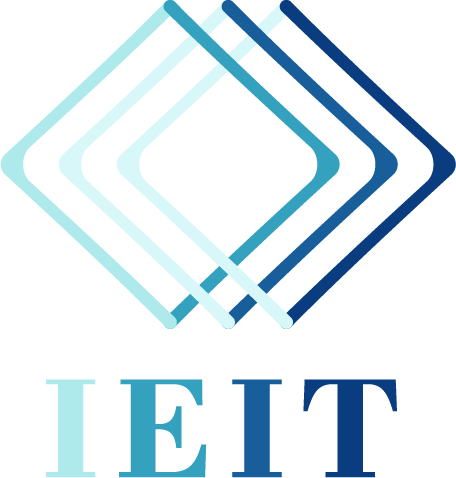
| Prof. LI QingChair Professor of Data Science and Head Director ofFIEEE; FIET/IEE; DMCCF Brief Introduction: Qing Li is currently a Chair Professor (Data Science) and the Head of the Department of Computing, the Hong Kong Polytechnic University. Formerly, he was the founding Director of the Multimedia software Engineering Research Centre (MERC), and a Professor at City University of Hong Kong where he worked in the Department of Computer Science from 1998 to 2018. Prior to these, he has also taught at the Hong Kong University of Science and Technology and the Australian National University (Canberra, Australia). Prof. Li served as a consultant to Microsoft Research Asia (Beijing, China), Motorola Global Computing and Telecommunications Division (Tianjin Regional Operations Center), and the Division of Information Technology, Commonwealth Scientific and Industrial Research Organization (CSIRO) in Australia. He has been an Adjunct Professor of the University of Science and Technology of China (USTC) and the Wuhan University, and a Guest Professor of the Hunan University (Changsha, China) where he got his BEng. degree from the Department of Computer Science in 1982. He is also a Guest Professor (Software Technology) of the Zhejiang University (Hangzhou, China) -- the leading university of the Zhejiang province where he was born. Title: Knowledge Graph Construction, Reasoning, and Manipulation: a Case Study in Education Domain Abstract: In recent years, knowledge graphs (KGs) have attracted tremendous interest and attention from both industry and academia, as evidenced by the many types of KGs developed including encyclopedia KGs, commonsense KGs, and KGs for medical science, covering a wide range of applications domains like search engines, question-answering and recommendations. For different application domains, however, the ways of constructing, reasoning, and manipulating KGs are quite different. In this talk, I shall introduce a collaborative project of building a university curriculum platform (called K-Cube) based on educational KGs. Among various functions and components, K-Cube supports a novel course KG construction framework guided by a standard ontology. To reduce the redundancy, we learn a backbone based on related Wiki data items and hierarchy, thereby avoiding to use named-entity recognition. As part of the reasoning, we design a machine reading comprehension task with pre-defined questions to extract relations, thereby improving the accuracy. Furthermore, KG Views are devised to support more advanced applications such as deriving instruction plans, for which two-way synchronization is supported to accommodate editing changes on the source KG and/or the derived views. In addition, KG manipulation operations including visualization (in both 2D and 3D spaces), navigation, and utilization have been developed and are to be introduced through an experimental prototype of KCube we have implemented. The ample facilities of K-Cube greatly accommodate learning path/material recommendations, effective academic advising with content exploration, and efficient course management, among other advantages. |
Prof. Xinguo YuCentral China Normal University, China Brief Introduction: Dr. Yu Xinguo is the dean of CCNU Wollongong Joint Institute and a professor of National Engineering Research Center for E-Learning at Central China Normal University, Wuhan, China. He is a senior member of both IEEE and ACM, and an adjunct professor of University of Wollongong, Australia. He is a vice director of Smart Educational Technology Branch Society under Automation Society in China, and the chair of Hubei Society of Artificial Intelligence in Research and Education. He received B.Sc. degree in Mathematics from Wuhan University of Technology, M. Eng degree from Huazhong University of Science and Technology, another M. Eng. degree from Nanyang Technological University, Singapore and Ph.D. degree in Computer Science from National University of Singapore. His current research mainly focuses on intelligent educational technology, educational robotics, multimedia analysis, computer vision, and machine learning. He has published over 100 research papers and his research papers have been widely cited by experts at home and abroad. He is an Associate Editor of International Journal of Digital Crime and Forensics, Guest Editor of several SCI journals, currently a guest editor of special issue: Humanized Computing and Reasoning in Teaching and Learning (https://www.techscience.com/CMES/special_detail/hcrtl). He was general chairs or program chairs for more than 10 international conferences. In late 2021 and 2022, he is general chair of International Conference International Conference on Teaching, Assessment, and Learning for Engineering, International Conference on Artificial Intelligence in Education Technology, and International Conference on Management Engineering, Software Engineering and Service Sciences. Title: Digital and Intelligent Transformation of Education Abstract: "Digital and Intelligent Transformation of Education" explores the systemic evolution of global education driven by the integration of digital technologies and artificial intelligence (AI). This keynote demonstrates how these innovations are redefining pedagogical paradigms and fostering advanced learning ecosystems. The presentation introduces a five-component AI framework for education, outlining AI’s transformative influence on the five aspects of education. A dedicated focus lies in AI’s pioneering contributions to mathematics education, emphasizing its role in addressing complex mathematical challenges and revolutionizing instructional approaches. By highlighting advancements in AI-driven tools and services, the talk underscores how intelligent technologies enhance both problem-solving capabilities and pedagogical strategies. This analysis not only maps the convergence of digital and AI technologies in modern education but also charts pathways for scalable, equitable learning solutions in a rapidly evolving academic landscape. |
|
| Prof. Adrian David Cheok Nanjing University of Information Science and Technology, China Brief Introduction: Adrian David Cheok AM FIET FIEAust FRSA is Full Professor at Nanjing University of Information Science and Technology, Director of the Imagineering Institute, Malaysia, Visiting Professor at Raffles University, Malaysia, Visiting Professor at University of Novi Sad-Serbia, on Technical faculty “Mihailo Pupin”, Serbia, Faculty of Ducere Business School, and CEO of Nikola Tesla Technologies Corporation. In 2024, Professor Adrian David Cheok was honored with induction as a Full Member into Sigma Xi USA, The Scientific Research Honor Society, a recognition that not only signifies his dedication to scientific excellence but also aligns his contributions with those of groundbreaking researchers. Sigma Xi is a beacon of distinction within the global scientific community, boasting over 200 Nobel Laureates among its members, including luminaries such as Albert Einstein. This prestigious society is renowned for its commitment to the advancement of science and engineering and includes among its distinguished members other eminent personalities like Linus Pauling and Guglielmo Marconi, whose pioneering work has indelibly shaped the landscape of modern science and innovation. Professor Cheok’s association with Sigma Xi marks a pinnacle in his career, affirming his commitment to the ethos of rigorous and impactful scientific inquiry. Title: Synthetic Hearts: Navigating Friendship, Intimacy, and Love Between Humans and Advanced AI Abstract: Large language models have crossed a psychosocial threshold: one in four Gen Z and Millennial users now believe an emotional bond with an AI is plausible, and millions already message “digital soul‑mates” every day. Recent field stories show companion AIs helping couples de‑escalate conflict and offering judgment‑free counselling, with some partners crediting chatbots for “saving” their relationships. Yet longitudinal experiments reported warn that the same unconditional positivity can foster dependency patterns akin to behavioural addiction and may blunt real‑world resilience.
|
Assoc. Prof. A.Y.M. Atiquil IslamEast China Normal University, China Brief Introduction: Assoc. Prof. A.Y.M. Atiquil Islam serves as the Director of the International Graduate Program in Educational Technology at East China Normal University. He is also a Guest Professor at the School of Teacher Education, Jiangsu University. Dr. Islam earned a multidisciplinary PhD by integrating two faculties—Education and Computer Science & Information Technology—at the University of Malaya. With nearly 21 years of experience across academia, industry, and business, he has made significant contributions to his field. Notably, he developed and validated three influential models: the Technology Adoption and Gratification (TAG) Model, the Technology Satisfaction Model, and the Online Database Adoption and Satisfaction (ODAS) Model. An accomplished author, Dr. Islam has published nearly 100 papers in leading international journals and conferences. In the last two years, he authored two books published by the Taylor & Francis Group: “The Technology Adoption and Gratification (TAG) Model and Its Application” and “Applying the Rasch Model and Structural Equation Modeling to Higher Education”. In addition to his academic roles, Dr. Islam is an Editorial Board Member of the British Journal of Educational Technology, Executive Editor of the International Journal of Smart Technology and Learning, and Editor of Cogent Education. He founded the world-leading book series, Assessment of Educational Technology (AET), in 2024 with Routledge Taylor & Francis Group which he continues to oversee as Lead Editor. Dr. Islam is particularly enthusiastic about leveraging his expertise in areas such as Artificial Intelligence in education, STEM education, and the Metaverse to inspire students, enhance teaching and learning experiences, and drive cutting-edge research initiatives. Title: Virtual Reality in Mathematics Education in the Age of Generative AI Abstract: In the age of generative AI, virtual reality (VR) is emerging as a fundamental learning environment in mathematics education. This talk will present the validation of a theoretical exploratory model adapted to examine higher education students’ adoption of VR for learning mathematics, using structural equation modeling. Remarkably, the validated model accounts for 91% of the variability in students’ adoption of VR for mathematics learning, revealing several significant relationships among exogenous, endogenous, and mediating variables. Participants expressed a strong intention to learn mathematics through VR in the context of generative AI, offering valuable insights and implications for researchers, educators, and policymakers in mathematics education. The talk will conclude with a call for future research into the transformative impact of VR on mathematics education research and practice. | 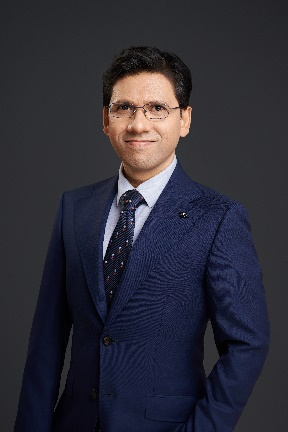 |
